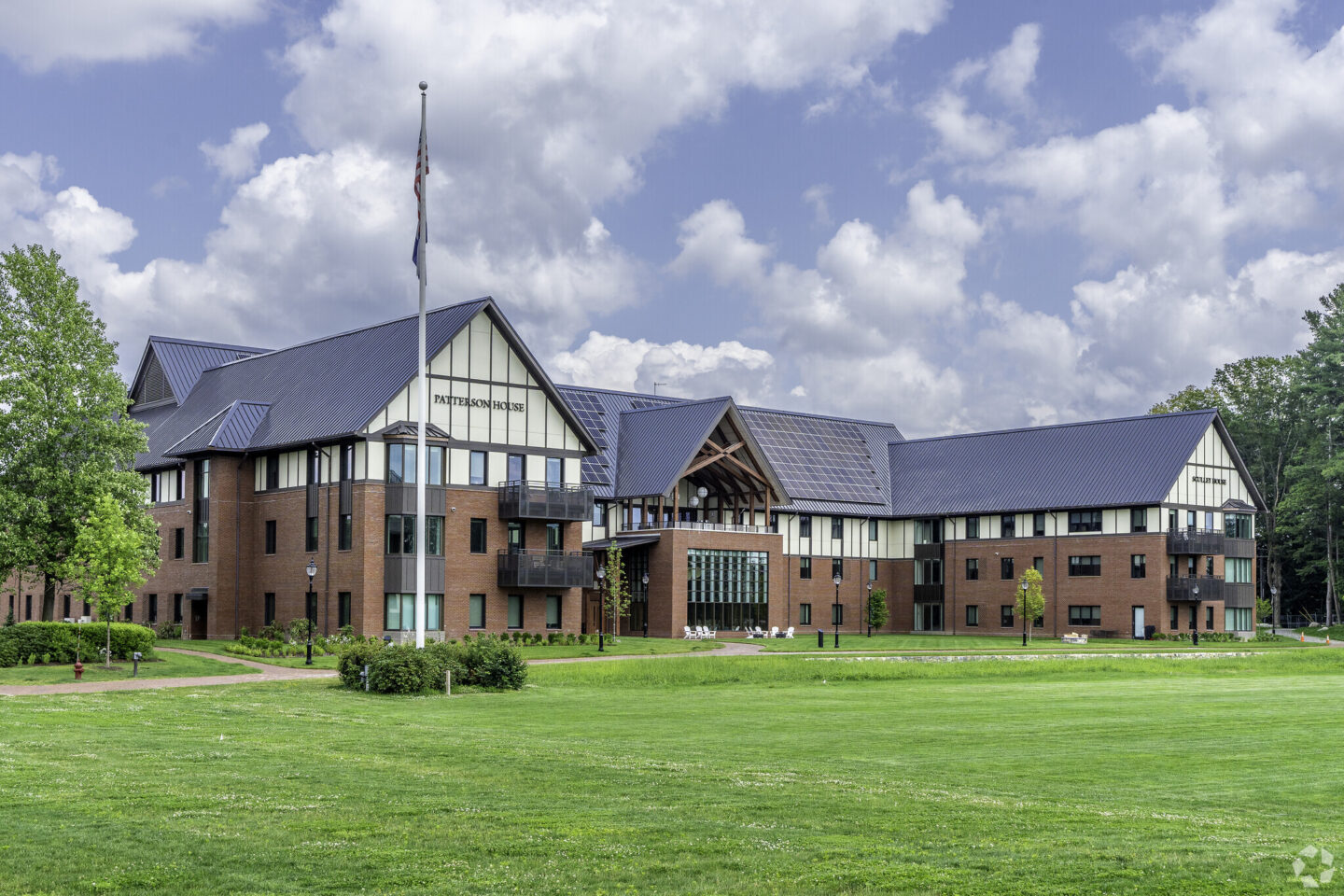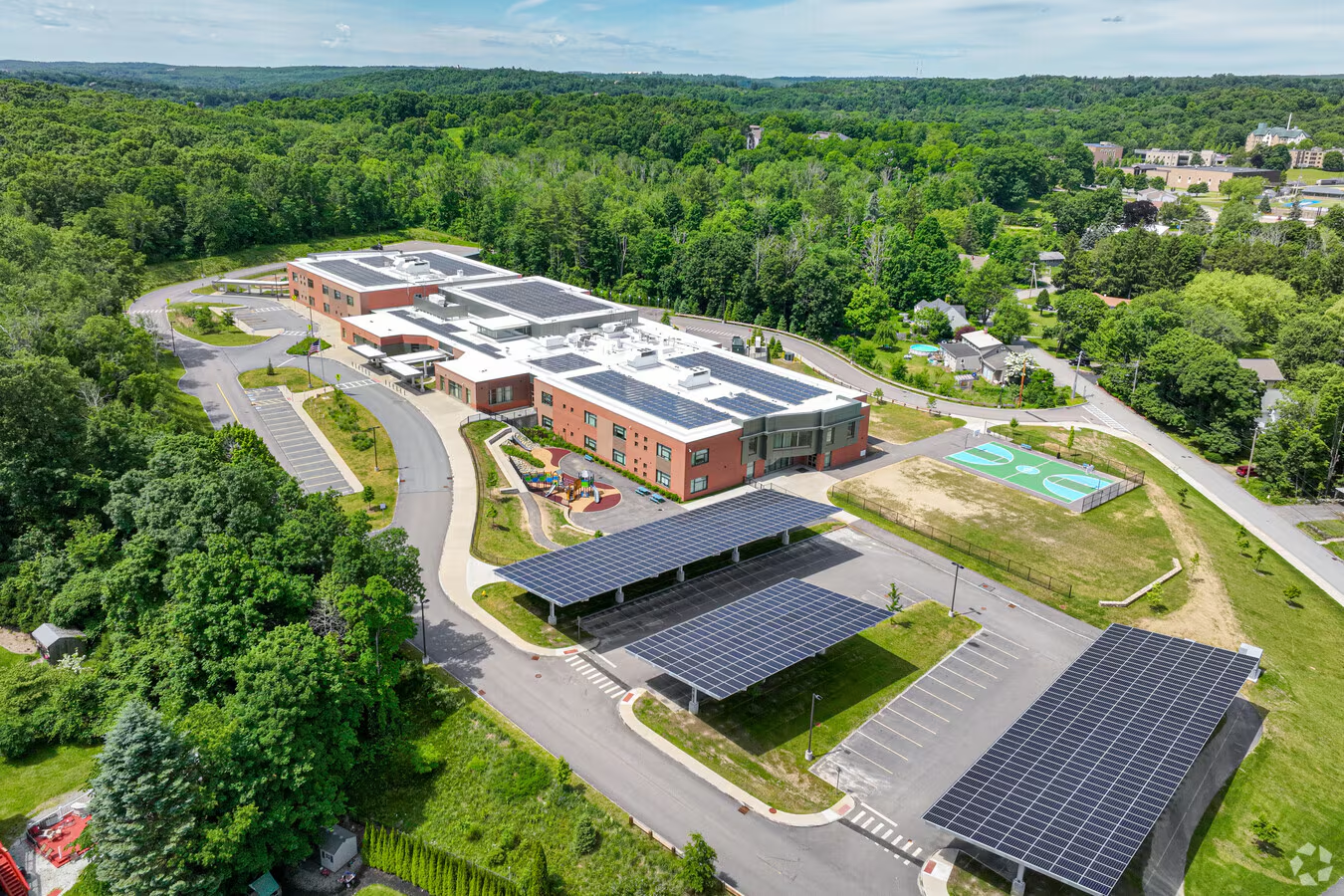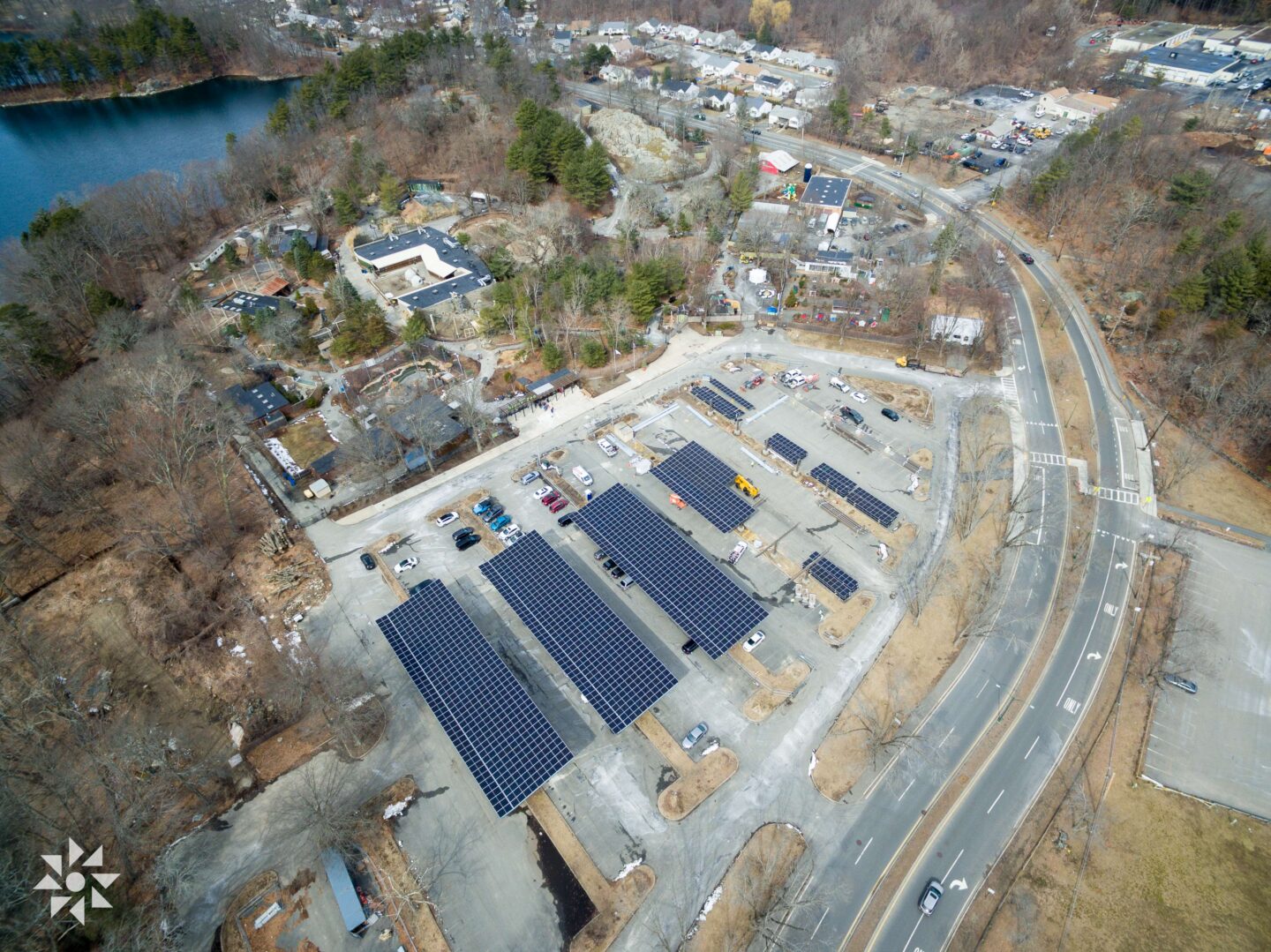Massachusetts Solar Incentives
Framingham Fuller School; Framingham, MA; 504.9 kW
Framingham Fuller School; Framingham, MA; 504.9 kW
SMART (Solar Massachusetts Renewable Target) is the Commonwealth’s signature solar and storage incentive program. Its latest phase, SMART 3.0, offers expanded incentives to accelerate the adoption of solar and battery storage, increase access to clean energy, and strengthen grid resilience across Massachusetts.

SMART 3.0 offers added incentives for canopy projects, rooftop systems over 1 megawatt (MW), and installations on landfills and brownfields.
Most projects 1 MW or larger must include battery storage. These systems qualify for additional incentives and deliver key operational benefits.
Storage is no longer an optional upgrade—it’s a central part of the state’s clean energy strategy.

UPCOMING DEADLINE: SMART 3.0 includes a one-time early enrollment window opening on October 15, 2025 for Program Year 2025.

Combining SMART 3.0 with the federal Investment Tax Credit (ITC) can significantly improve project economics. The ITC currently covers up to 30% or more of eligible system costs. While the ITC remains one of the most valuable clean energy incentives, it is being phased out. Aligning your project early is key to maximizing financial returns.
Call the Solect team today to strategize the optimal way to stack the ITC and SMART 3.0 incentives, before the window closes.

SMART 3.0 sets clear eligibility requirements to ensure incentives go to construction-ready projects.
Private sector applicants must provide:
Public sector applicants (e.g., municipalities, schools) must provide:
Qualified projects may apply during the open enrollment window and are evaluated based on readiness and available capacity.
Dive deeper: Explore our blog post on SMART 3.0 for a detailed breakdown of the program and how it works.
Quick overview: Download our brochure for a concise summary of SMART 3.0’s key features.
Official insights: Visit the Massachusetts government webpage for additional program details and policy updates.

Solect has extensive experience navigating SMART incentives and developing high-impact solar and storage projects across Massachusetts and the Northeast. We help organizations evaluate their eligibility, design efficient systems, and secure all available financial benefits.
The MassCEC-run Green School Works program offers roof replacement or repair funding to K-12 public schools serving low-income (LI) and/or environmental justice communities (EJC) in Massachusetts to foster solar implementation. Leverage the funding option to future-proof your public school building and lead your community toward a more sustainable future.
Overview: What is the Program About?
This initiative seeks to motivate Massachusetts state agencies and campuses to embrace solar photovoltaic (PV) systems, battery energy storage solutions, electric vehicle (EV) charging stations, and other decarbonization strategies. The goal is to advance broader statewide climate and sustainability objectives beyond electricity generation.
Funding Information:
The Massachusetts Department of Energy Resources (DOER) is driving and funding this program with a total allocation of $25 million. Each project can receive up to $2.5 million, including additional eligible funding. Notably, projects situated in Environmental Justice (EJ) communities can benefit from a 10% increase in total funding for solar, storage, EV charging infrastructure, and decarbonization efforts.
Eligibility:
This program is open to executive agencies, state institutions of higher education, or quasi-public state entities. Please refer to the linked webpage for a comprehensive list of eligible Massachusetts state organizations.
Application Process:
Applications will be accepted, reviewed, and awarded on a rolling basis until June 30, 2027.
Offsetting Embodied Carbon
Grant recipients must offset the estimated embodied carbon associated with the project, including emissions from producing the solar panels and steel. Embodied carbon, as defined by the EPA, refers to the greenhouse gas emissions associated with the upstream stages of a product’s life cycle, including extraction, production, transportation, and manufacturing.
Battery Energy Storage Systems (BESS)
In accordance with current SMART requirements, solar projects with a capacity of 500 kW AC or greater must evaluate and incorporate battery energy storage, unless such inclusion is deemed impractical due to technical or fiscal issues.
For additional information, please refer to the One-Pager program factsheet.
Contact Solect Energy
To discuss your eligibility and strategize an effective roadmap to leverage the LBE grant for your optimal solar success and return on investment (ROI), reach out to us today!
Assess project site(s) and current and future electric profile
Present analyses and recommendations on financial benefits
Contract, engineer, and
develop
Construct, interconnect,
and commission projects
Optimize your solar ROI
with cutting-edge O&M services
Asset and performance management
and compliance